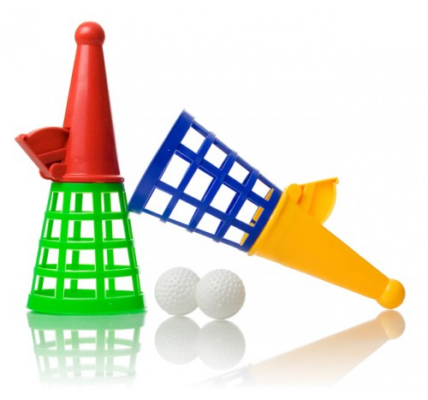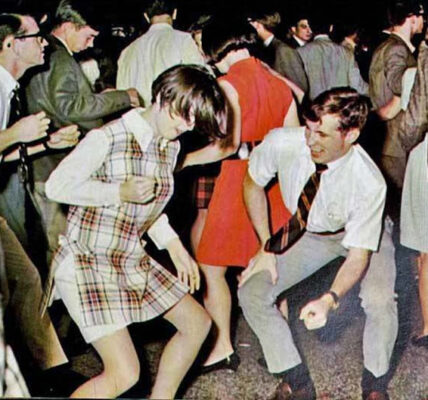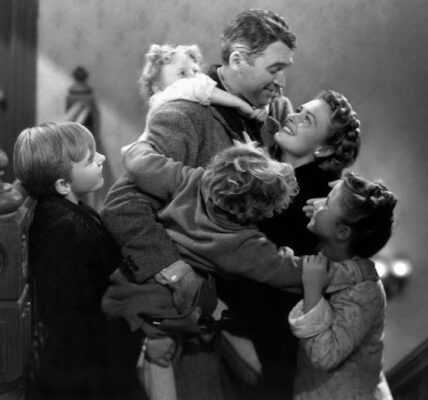Do you think you have a sharp eye? If so, there’s a new viral challenge that’s putting observation skills to the test. Hidden somewhere in this image is a cleverly camouflaged dog—a spaniel, to be precise. Surrounded by branches, leaves, and debris, this spaniel has left many viewers scratching their heads in frustration.
So, are you ready to dive into this visual puzzle and see if you can spot the elusive spaniel?
The Hidden Spaniel Puzzle: A Test of Perception
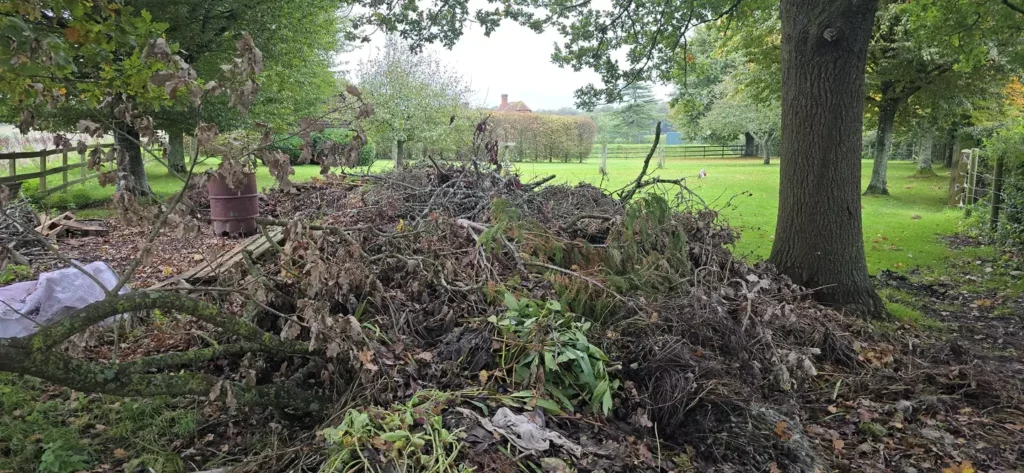
At first glance, this image appears to be nothing more than a pile of natural debris in a park or forest. But look closer! Somewhere amidst the tangled branches and leaves lies a spaniel, perfectly camouflaged to blend in with its surroundings. The person who uploaded this image to social media called it “extremely difficult,” and viewers seem to agree.
Many people have struggled to spot the spaniel, with comments ranging from:
- “I thought there was no dog at all until I found it!”
- “I was about to give up until I caught a glimpse of the dog’s eyes.”
- “This must be a trick! But then I finally saw it.”
So, do you have what it takes to find the hidden spaniel? Before you start scanning the image, let’s talk about some common mistakes that often mislead people in puzzles like this.
Common Mistakes When Solving Visual Puzzles
When it comes to solving hidden-object puzzles, certain errors can trip you up. Let’s explore the common pitfalls and why they make the challenge seem tougher than it really is:
1. Focusing on the Center of the Image
Most people instinctively direct their attention toward the center of the image, expecting the hidden object to be prominently placed. However, that’s not always the case, especially when it comes to visual puzzles where the object is intentionally disguised in unexpected areas.
2. Overlooking Small Details
In the rush to find the spaniel, many viewers tend to miss smaller details. Sometimes, the solution lies in subtle variations in shadows, textures, or color differences that blend in with the surroundings.
3. Assuming It’s a Trick
Some viewers become convinced that the challenge is a hoax and quickly give up. But rest assured, this puzzle is genuine—the spaniel is there, cleverly concealed by its environment.
4. Not Taking Breaks
Staring at an image for too long can make it harder to spot hidden objects. Taking a break and returning to the image with fresh eyes can often reveal details you missed initially.
Step-by-Step Guide to Finding the Hidden Spaniel
If you’re having trouble finding the spaniel, don’t worry! Here’s a step-by-step guide that will help you locate the cleverly hidden dog in the image:
1. Start with the Foreground
Begin by examining the lower part of the image, where the leaves, twigs, and branches are most dense. Look closely for unusual shapes or patterns that could indicate the presence of a dog.
2. Look for Brown Tones
The spaniel’s coat blends remarkably well with the brownish hues of the surrounding debris. Pay attention to patches of brown that appear slightly different from the rest, whether in shade or texture.
3. Focus on Shapes
Spaniels have distinctive head shapes and long ears. Look for rounded curves that could resemble a dog’s head or floppy ears. The ears, in particular, might be the first clue, as they tend to blend well with the foliage.
4. Check Near the Branches
The spaniel is hidden beneath a branch, making it easy to miss at first glance. Focus on areas where branches cross each other, as this is often where the dog’s head is most likely to be.
5. Spot the Dog’s Eye
The clearest sign is the glint of the spaniel’s eye. Even when the rest of the dog blends into the background, the eye might stand out as a small, dark spot amidst the leaves.
If you’re still having trouble finding it, try zooming in on the image. Sometimes, a closer look can make all the difference.
Did You Find the Spaniel?
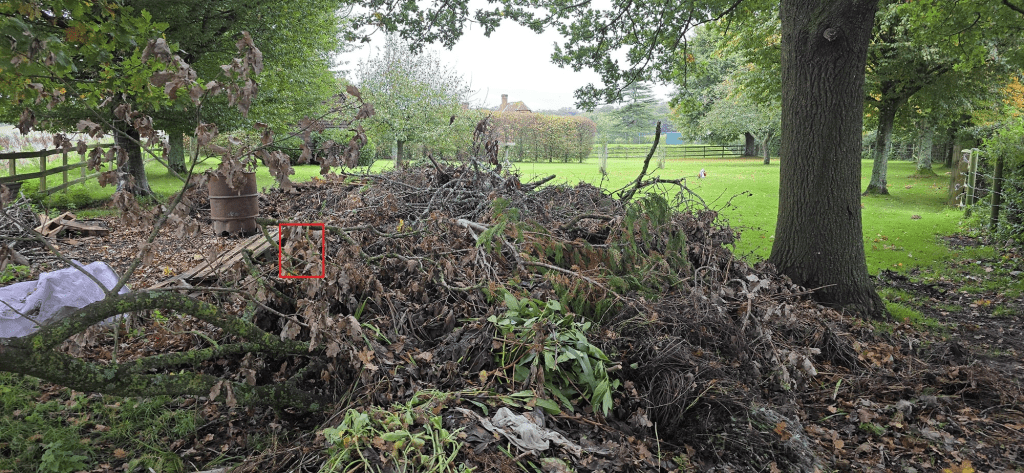
So, were you able to spot the hidden spaniel on your own? If you did, congratulations! You have a keen eye for detail. If not, don’t be discouraged—this puzzle was designed to be challenging. Many people have admitted to giving up before spotting the spaniel with the help of a hint or two.
Why Solving Puzzles Is Good for Your Brain
Solving visual puzzles isn’t just fun—it’s also beneficial for your brain. Here’s how:
- Improves Concentration: Puzzles like this one require you to focus and pay close attention to details, which can help enhance your concentration over time.
- Boosts Problem-Solving Skills: As you analyze each detail to find the solution, you strengthen your problem-solving skills.
- Enhances Memory: Searching for hidden objects engages your memory and helps your brain retain visual patterns, which can boost your overall cognitive function.
Studies have shown that puzzles can improve memory, sharpen observation skills, and enhance cognitive abilities. So, keep challenging yourself!
Final Thoughts: Sharpen Your Perception with Visual Puzzles
Visual puzzles like the hidden spaniel challenge not only offer entertainment but also teach us to pay closer attention to details. They encourage us to think creatively and to approach problems from different angles. So, the next time you encounter a similar challenge, remember to be patient, take your time, and consider every part of the image.
Now that you’ve completed this puzzle, why not try another? There are countless brain teasers out there that can help you develop a sharper eye and a more analytical mind. Let us know in the comments if you found the spaniel on your own, and feel free to share this challenge with friends and family. After all, there’s nothing like a little friendly competition to keep our brains in top shape!

